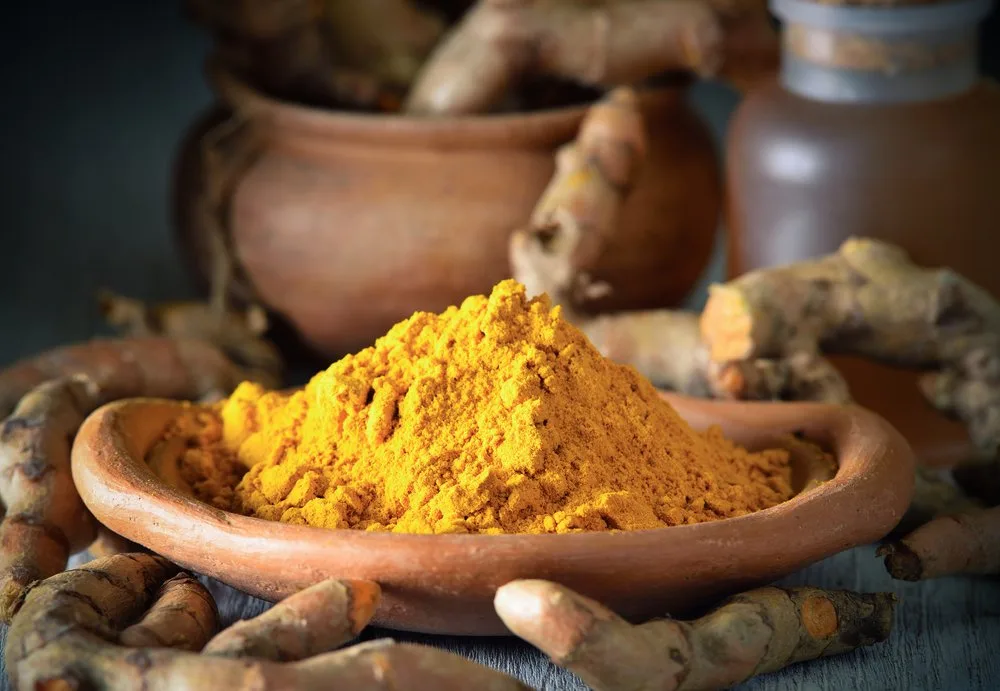Medical Research News: A new study has again confirmed scientists believe in the possibility that the traditional medicine curcumin could have a positive effect on diabetes. They say this traditional spice targeted 35 genes that are responsible for diabetes. Scientists have called for more clinical trials to prove a therapeutic effect.
“We believe that further clinical trials … will better show the positive effect of curcumin on the therapeutic of diabetes.”
Background to the study
The study and authors: Therapeutic Role of Curcumin in Diabetes: An Analysis Based on Bioinformatic Findings. Mahmoudi A, Atkin SL, Nikiforov NG, Sahebkar A. Nutrients. 2022; 14(15):3244
The authors of the study explain diabetes is an increasingly prevalent global disease caused by impairment in insulin production or insulin function.
“Diabetes in the long term causes both microvascular and macrovascular complications. These may result in retinopathy, nephropathy, neuropathy, peripheral arterial disease, atherosclerotic cardiovascular disease, and cerebrovascular disease.”
Considerable efforts have been expended looking at numerous genes and pathways to explain the mechanisms leading to diabetes-related complications.
The role of curcumin
Curcumin is a traditional medicine with several properties. These include being antioxidant, anti-inflammatory, anti-cancer, and anti-microbial. All of which may have utility for treating diabetes complications.
According to Healthline, “The spice known as turmeric may be the most effective nutritional supplement in existence. Many high-quality studies show that turmeric has major benefits for your body and brain. Many of these benefits come from its main active ingredient, curcumin.”
Curcumin is the main active ingredient in turmeric. It has powerful anti-inflammatory effects and is a very strong antioxidant.
Other studies
Previous research has also shown curcumin can inhibit hyperglycemia, oxidative stress, and the inflammatory processes caused by Diabetes Mellitus.
In addition, and consequently inhibits the systemic complications of this disease, such as hypertension, dyslipidemia, neuropathy, nephropathy, and endothelial dysfunction
This new study methodology
This study, based on the system biology approach, aimed to investigate the effect of curcumin on critical genes and pathways related to diabetes.
Methods:
The team first searched interactions of curcumin in three different databases, including STITCH, TTD, and DGIdb.
“Subsequently, we investigated the critical curated protein targets for diabetes on the OMIM and DisGeNET databases. To find important clustering groups (MCODE) and critical hub genes in the network of diseases, we created a PPI network for all proteins obtained for diabetes with the aid of a string database and Cytoscape software. Next, we investigated the possible interactions of curcumin on diabetes-related genes using Venn diagrams. Furthermore, the impact of the spice on the top scores of modular clusters was analyzed. Finally, we conducted biological process and pathway enrichment analysis using Gene Ontology (GO) and KEGG based on the enrichR web server. Results: We acquired 417 genes associated with diabetes, and their constructed PPI network contained 298 nodes and 1651 edges.”
“Next, the analysis of centralities in the PPI network indicated 15 genes with the highest centralities. Additionally, MCODE analysis identified three modular clusters, whose highest score cluster (MCODE 1) comprises 19 nodes and 92 edges with 10.22 scores. Screening interactions in databases identified 158 protein targets. A Venn diagram of genes related to diabetes and the protein targets of curcumin showed 35 shared proteins, which observed that curcumin could strongly interact with ten of the hub genes.”
Gene impact
“Moreover, we demonstrated that curcumin has the highest interaction with MCODE1 among all MCODs. Several significant biological pathways in KEGG enrichment associated with the 35 shared included the AGE-RAGE signaling pathway in diabetic complications, HIF-1 signaling pathway, PI3K-Akt signaling pathway, TNF signaling, and JAK-STAT signaling pathway. The biological processes of GO analysis were involved with the cellular response to cytokine stimulus, the cytokine-mediated signaling pathway, positive regulation of intracellular signal transduction, and cytokine production in the inflammatory response.“
In summary
Research shows that in this study, curcumin targeted various important genes involved in diabetes. This supports previous research suggesting that it may have utility as a therapeutic agent in diabetes
References
This post has taken direct extracts from the following:





![women [longevity live]](https://longevitylive.com/wp-content/uploads/2020/01/photo-of-women-walking-down-the-street-1116984-100x100.jpg)









